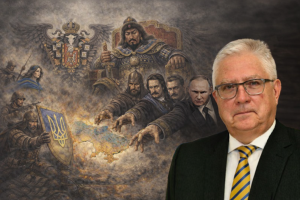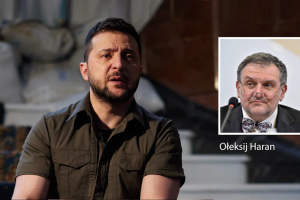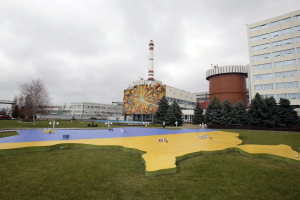Why Russia Will Not Go Nuclear Any Time Soon
In terms of outright military performance, Russia has so far failed in Ukraine and achieved none of its major objectives. This development leads some experts to believe that the more Putin is losing on the battlefield, the more likely he is to use nuclear weapons.
So, should Ukraine stop its offensive in the South and the West cease supplying the necessary weapons and equipment to Ukraine? The short answer is “no”.
That is because the assumption that Putin will go nuclear if he is not doing well on the battlefield is overly simplistic. It ignores other options available to the Kremlin and creates an artificial dichotomy, rather than paying attention to the actual policies pursued by the Kremlin.
It is true that Putin will want to continue the escalation – he has no intention of giving up, and his track record shows that it is Putin’s usual recourse when he does not get what he wants. However, for Putin, a man who thinks in terms of a “special (military) operation”, a nuclear strike is not the only means to escalate. The Kremlin is much better at covert, indirect strategies that seek to disorient, rather than head-on confrontations with unclear risks.
When it comes to Ukraine, rather than winning outright on the battlefield, Putin may aim to prevail over the country by decimating its economy. Russia has repeatedly targeted major factories in Ukraine to weaken the country’s production capability as well as blocked the majority of Ukraine’s exports via seaports. The damage to infrastructure, the lack of willingness by investors to engage with the country in war, the absence of flights, and other liabilities to the country’s economy mean that Putin’s war will weaken Ukraine economically.
Further, the Kremlin has been targeting critical infrastructure in Ukraine, which exacerbates the humanitarian situation in the country. Beyond the deliberate shelling of the Zaporizhzhia nuclear powerplant, the largest one in Europe, Russia has repeatedly damaged or destroyed Ukraine’s electricity and heating infrastructure. It has also set multiple fields on fire hurting Ukraine’s agricultural sector. Many of these instances take place behind the frontline, further proof of Russia's terrorist-like methods. Indeed, if Russia finds itself in an unfavorable position on the battlefield, there are plenty of civilian targets that it could resort to targeting – dams, bridges, water supply facilities, and other infrastructure.
Beyond Ukraine, some of Putin’s moves have been directed westwards. One, of course, is the creation of an artificial crisis that Putin hopes will persuade Ukraine’s partners to pressure the country into an unfavorable peace deal. Earlier, the potential food shortage that may result from Russia’s blockade of Ukraine’s Black Sea ports seemed to be the most likely culprit. It could provoke a significant migration inflow into Europe, further strengthening Putin’s hand. Now that the Russia-Ukraine grain deal is in place, this scenario is somewhat less likely, although not entirely unplausible.
Most recently, Russia has focused on blackmailing Europe by decreasing gas supplies. Again, the intention behind these actions is to dissuade Europe from supporting Ukraine. Russia has used the pretext of a technical malfunction of the Nord Stream 1 pipeline and ultimately refused to accept the Canadian turbine that was supposed to fix the issue.
For the results of these covert strategies to materialize, Russia needs time. The outcome will not be immediate and, meanwhile, Russia will not consider the use of nuclear weapons – that is, at least until these strategies fail.









